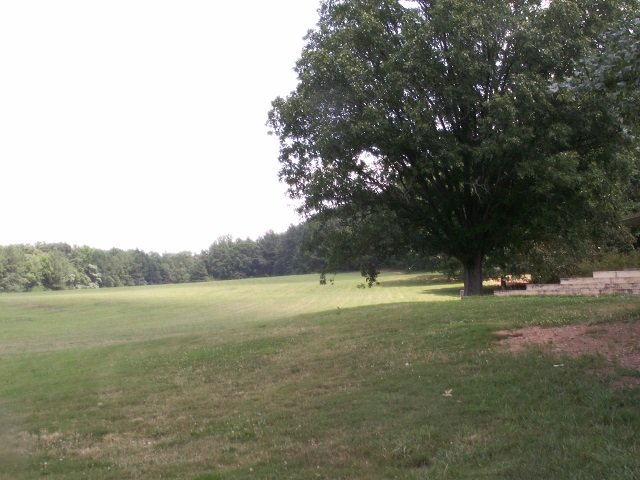While visiting some friends in Georgia and attending a convention in June of 2012, we had a great time checking out the Coca-Cola Museum as well as their capitol. One of the more interesting things we did was have dinner at Stone Mountain and watched a laser light show on the huge monument depicting Stonewall Jackson, Robert E. Lee, and Jefferson Davis during the Civil War. It was very interesting and led us to check out a few other Civil War parks and Battlefields. One such place we visited during our visit was Kennesaw Mountain National Battlefield Park. This huge park is located between Marietta and Kennesaw.

This battlefield is where the battle of Kennesaw was fought between General William Sherman of the union army and Joseph Johnson of the Confederate army. The aforementioned battle took place between June 18, 1864, and July 2, 1864. Johnston’s army was able to successfully block Sherman’s advance through this area with another defensive position and was deemed a Confederate victory. This was impressive as Johnston’s army only had 50,000 men and 187 cannons, while Sherman’s army had more than 100,000 men, 254 cannons, and 35,000 horses. After the battle was over, more than 5,350 soldiers died.

Earlier I said the battlefield was huge and I have to share that it is 2,923 acres. On February 18, 1917, this was established as Kennesaw Mountain National Battlefield. It remained this way until it was transferred to the War Department on August 10, 1933, and redesignated as a national battlefield park on June 26, 1935. 30 plus years later on October 15, 1966, it was listed on the National Register of Historic Places.

Here is a timeline of what led up to the Civil War in the Western Theater from 1861 to 1864.
- From December of 1860-April 1861, the southern states secede, Fort Sumter is bombarded, and the war officially begins.
- In September of 1861, Kentucky ends neutrality and comes under union control.
- The following February of 1862 the Union takes Fort Henry and Donelson and gained control of Tennessee.
- During the months from February to June of 1862 the Union forces take Island No. 10, then Memphis on Mississippi.
- In March of 1862, a Union victory at the Battle of Pea Ridge establishes control of Missouri
- Then in April of 1862 Union victory at Shiloh opens the way into Northern Mississippi.
- Also in April of 1862, the Union Navy takes New Orleans and gains access to the Mississippi River.
- The following January 1863, the Battle of Stones River secures middle Tennessee for Union.
- During the months of January – July of 1863 Grant takes Vicksburg, opening the Mississippi River and splitting Confederacy.
- In September of that year a battle at Chickamauga, South gains the greatest victory in the western theater.
- The following month, November of 1863, a Union victory in Chattanooga Campaign opens the way to the lower South.
- Then from May to November of 1864 during the Atlanta Campaign, Sherman takes Atlanta and begins March to the Sea.

With that information in mind, we made our way to the Kennesaw Mountain National Battlefield Park to explore the park and learn more about the battlefield. We made our way to the park and received a self-guided map of the park with several highlights. These include: Kennesaw Mountain, 24-Gun Battery, Wallis House, Pigeon Hill, Cheatham Hill, Sherman/Thomas Headquarters, and Kolb’s Farm. The park today includes monuments, historical markers, cannon emplacements, and 22 miles of hiking trails. The park trails offer short walks and long hikes. Starting at the visitor center, the roundtrip distances are two miles, six miles, 11 miles, and 17 miles. All require moderately steep climbing. Special programs are presented on weekends during peak season. It was peak season while we were there, but we visited during the week so there weren’t any presentations. But we took the map and decided to explore on our own.

The first thing we decided to check out was the overlook near the summit of Kennesaw Mountain. From up there you will find views of Atlanta and the Northern Georgia terrain where Sherman’s and Johnston’s armies fought in the late spring and summer of 1864.

The next thing we wanted to check out was the Illinois Monument on Cheatham Hill. This monument is the largest monument in the park. It was dedicated in 1914 and honors the Illinois soldiers who served during the battle. Note of interest, near the base of the monument, is the entrance to a tunnel begun by Union soldiers intending to blow up the Confederate position with a mine.

Another monument that we wanted to see was the Georgia Monument. The Georgia Monument honors all Georgians who fought in the war. One interesting fact about this monument was that it was dedicated in 1963 during the Civil War centennial celebration, but was improperly installed at the foot of Kennesaw Mountain rather than where Georgia troops fought.

We saw many other monuments that I either can’t recall or didn’t know the name of. However, one note of interest is that there are still many pieces of musket balls and other artifacts from the Civil War and there were signs prohibiting the use of metal detectors and/or removing items from the battlefield. We had a very educational visit to Kennesaw Mountain National Battlefield Park. If you are in the area, I highly suggest checking it out. Here is a link to their website if you are planning to go and visit yourself. Have you been to this park? If so, how was your experience? Please leave a comment below and share your story.
Kennesaw Mountain National Battlefield Park Visitor Information
Address:
905 Kennesaw Mountain Drive Kennesaw, GA 301524855
Phone:
7704274686
Hours:
Park Hours:
6:30 AM- 6:30 PM – Standard Time
6:30 AM- 8:30 PM- Daylight Saving Time (March-November)
Visitor Center Hours:
Daily – 9 am – 5 pm
Prices:
KEMO Day Pass – $5
The KEMO Daily Pass is valid for the date of purchase only! It admits all persons traveling in a single, private, non-commercial vehicle (car/truck/van) and is non-transferable.
KEMO Annual Pass – $40
The KEMO Annual Pass is valid for one year from the month of purchase! It admits all persons traveling in a single, private, non-commercial vehicle (car/truck/van) and is non-transferable.
Directions:
From I75, take exit 269 and drive 2.1 miles west on Barrett Parkway. Turn left onto Old US 41 and proceed 1.2 miles to Stiles boro Road at the frst traffc light after entering the park. Turn right onto Stilesboro Road, then left through the park gate into the visitor center parking lot.
Parking:
When you park your vehicle in the park, your proof of payment is a KEMO Daily Pass, a KEMO Annual Pass, or an America the Beautiful Pass. Physical passes must be displayed from the inside rearview mirror or on the dashboard of your vehicle, making sure the face of the pass is visible from the outside. Digital passes will be tied to your vehicle’s license plate number.
Accessibility:
Their visitor center is fully accessible, with a museum tour for the visually and hearing impaired. Due to the nature of the historic terrain, trails have remained natural and have not been altered. The mountain road is paved. Their ADA approved shuttle bus can accommodate special needs, and they strive to make the facilities, services, and programs accessible to all. If you have special requirements, please call the visitor center at 7704274686 ext. 0 before your visit.






Thanks for sharing! I’m in NJ and one of my plans this summer is to visit the historical sites right here in my state.
Samantha, the closest I can come to having visited that battlefield park, is having visited Valley Forge. Also, it seems somehow related that I have been to Arlington National Cemetery, a site we could never forget.
What a vast field. Had me thinking about how many rests and breaks you had during the visit. 🙂
Visiting battlefields is both interesting and educational. I’ve never been to Kennesaw but been to Saratoga Battlefield many times in my younger years. Thanks for another great tour.